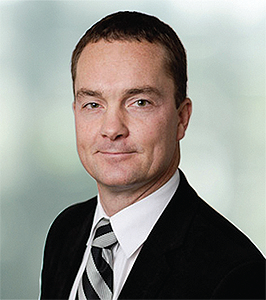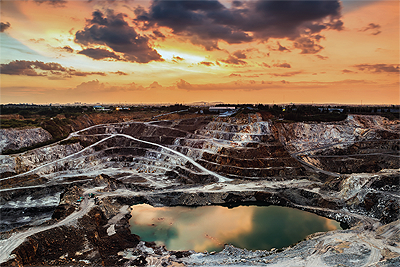BWSC
Enabling sustainable development
Being able to analyse a client’s energy needs, look at the bigger picture and make sound judgements with public and private stakeholders is a characteristic that has distinguished Burmeister & Wain Scandinavian Contractor (BWSC) over the years. It is also a trait cited by the company’s Commercial Director Hybrid Energy Systems, Flemming Juel Jensen, when he was asked to pinpoint some of the secrets to the ongoing success achieved by the designer and developer of turnkey power plants.
“Our ability to look at power production from a holistic perspective and act as a trusted partner to our customers is pivotal. A typical medium-sized power plant costs hundreds of millions of euros.  To ensure a return on investment, it must operate for decades. Therefore, we need to be careful in selecting the right power sources and components, based specifically on our customers’ needs and a project’s specifications. In this, we fully rely on our engineers and specialists, whose vast experience allows us to go in and analyse the energy needs, thus supporting the public or private stakeholders when looking for ways to expand and/or optimise the grid,” Flemming explains.
To ensure a return on investment, it must operate for decades. Therefore, we need to be careful in selecting the right power sources and components, based specifically on our customers’ needs and a project’s specifications. In this, we fully rely on our engineers and specialists, whose vast experience allows us to go in and analyse the energy needs, thus supporting the public or private stakeholders when looking for ways to expand and/or optimise the grid,” Flemming explains.
There are three market areas, in which BWSC delivers its turnkey power plants. These are biomass-to-energy, waste-to-energy, and hybrid power systems. Following the purchase of Burmeister & Wain Energy (BWE) in 2017, the company acquired the in-house capability to design, build, and service biomass boilers, as well as convert coal-fired power plants to biomass. In addition to being able to handle all phases of EPC power plant projects – from the development and design phase to construction and commissioning – BWSC also offers operation and maintenance contracts both for its own turnkey projects and for plants built by other contractors.
Throughout its history, the company has supplied EPC power plants in 54 countries in a wide range of markets. BWSC is particularly well-positioned in the UK and in Africa, and has grown an enviable reputation for providing off-the-grid countries with energy solutions to islands and remote areas. Flemming details: “Our long experience of building plants on remote islands has given us valuable knowledge of smaller isolated grids, which, in turn, gives us the edge when adding renewable energy sources to existing baseloads. We keep electrical stability as our main focus and our analysis helps us to configure it as such, while at the same time minimising the cost of energy. BWSC has long acknowledged the importance of a well-balanced system and this has never held truer now that renewable energy sources are being added to the system.
“With most islands interested in utilising solar and wind power, some also want to adopt more effective waste management and minimise landfill on valuable and scarce land. In response to that, we have the ability to take on projects of this kind, either as mass burn or gasification of the household waste,” he adds.
In fact, it is one of BWSC’s missions to help the reduction of CO2 emissions through the use of greener fuels. Having added biomass capabilities to its offering, the company has now built turnkey biomass power plants that have already reduced the emissions in Northern Europe by burning biomass waste from fields, instead of burning the fields themselves as it used to be done up until the early 1990s.
“Waste-to-energy plants remain the best and more efficient solution to reduce landfilling,” Flemming maintains. “Uncontrolled landfills release large amounts of methane gas and waste-to-energy plants convert the waste into energy, instead of releasing the methane gas directly into the atmosphere. This contributes significantly to the reduction of greenhouse gas emissions. While many countries in the world are trying to cut CO2 emissions by adding more renewable energy sources to their grid, in some places, even a highly-efficient engine can do the trick.”
He continues: “If you take Mali as an example, two years ago, less than two-thirds of the country’s 12 million people had access to the electricity grid. When we added 90MW to the grid in the autumn of 2018, we boosted power access by 20 per cent. While getting access to a national grid is certain to change the habits and electricity usage of the users, we must also assume that a high number of smaller generators will also be taken out of use. This could then lead to a reduction of CO2 emissions by about 90,000 tonnes annually.”
Being quite active on the African continent, BWSC, in consortium with MAN Energy Solutions, handed over a 120MW dual-fuel power plant for inauguration in Benin in August 2019. The plant takes an important step in boosting the social and economic possibilities in a country where two-thirds of the inhabitants have no or limited access to electricity.
“Back in Europe, we are currently involved in the Hooton Bio Power Resource Recovery Centre project in the UK, which will be the largest gasification plant in the country and is scheduled to be finalised in 2021. At the same time, we are also working on the Sund power station in the Faroe Islands to which, across three phases, we have delivered turnkey solutions. As Sund is the largest power supplier on the island, our power plants and control system have proven crucial in controlling the hybrid island grid, which also consists of wind power and several storage solutions such as batteries and pumped storage,” Flemming highlights some of the main projects BWSC is taking part in at the moment.
With the start of the new decade, the organisation will be looking to optimise its core competences and broaden its markets technology-wise. Building upon its strong experience in delivering power plants to the world’s harshest climates – including Greenland’s frozen terrain and Iraq’s scorching desert – BWSC has set its sights on delivering a maximum renewable penetration to the mining industry.
“Combining our Scandinavian knowhow of renewable energy with our project management and logistics expertise, we can get maximum penetration to the mines, resulting in lower operating costs, higher earnings, and accountability, all while lowering environmental impact,” Flemming points out. “Furthermore, we will be aiming to increase the value we deliver to our clients, partners, and wider society, and also continue to deliver on the UN Sustainable Development Goals (SDG) with focus on affordable and clean energy (SDG 7).
“We believe that this is one of the cornerstones to obtain other SDGs, too,” he goes on, before concluding: “There are still almost one billion people without access to electricity and many developing countries are lacking the required infrastructure that would enable economic and social development (SDG 8). With a long track record of bringing energy to remote places, we will continue to focus on developing environmentally-efficient technologies and delivering affordable energy with a reduced carbon footprint to those who need it most.”
BWSC
Services: Developer, contractor and operator of tailored engine based and boiler-based power plants